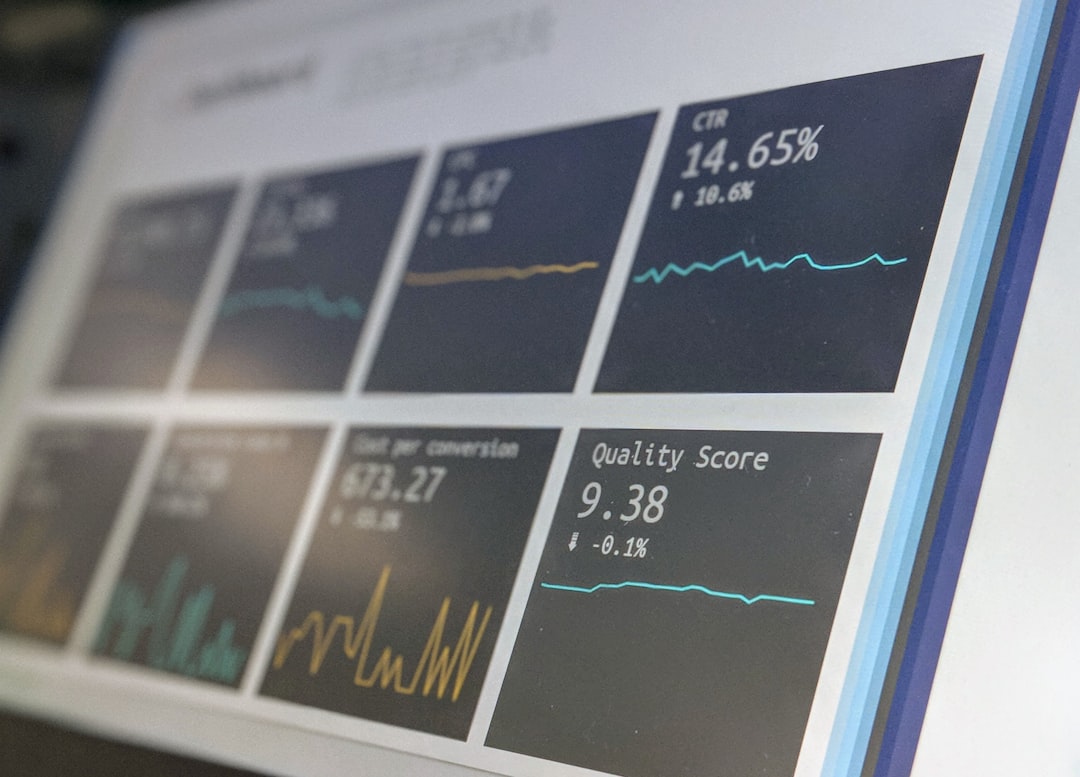Nomad Finance Legal Tips Health Insurance and Emergency Preparedness

Introduction
Living a location‑independent lifestyle is a dream for many, but the freedom it brings also comes with a set of responsibilities that are often overlooked. Health coverage, travel insurance, tax compliance and emergency preparedness are not optional extras – they are the safety nets that keep a nomadic life sustainable and stress‑free. This guide brings together the most critical finance, tax and legal tips for digital nomads, with a deep dive into health and travel insurance options and practical steps for handling emergencies on the road.
The Legal Landscape for Nomads
Understanding Residency and Domicile
When you move from one country to another on a regular basis, you must know the difference between residency and domicile. Residency is usually defined by the number of days you spend in a country during a tax year, while domicile refers to the place you consider your permanent home. Many countries use a 183‑day rule to determine tax residency; if you spend more than half the year in a particular jurisdiction, you will likely be deemed a tax resident there.
Key points to remember:
- Keep a detailed travel log that records entry and exit dates for every country you visit. This log will be invaluable if a tax authority asks for proof of your physical presence.
- If you intend to keep your domicile in a low‑tax country, maintain strong ties there – such as a bank account, a mailing address, and a driver’s licence.
- Some nations have “stateless” or “digital nomad” visas that allow you to stay for up to a year without triggering tax residency. Research these options before you book long‑term accommodation.
Choosing the Right Legal Structure
Many nomads operate as freelancers, contractors or remote employees. Depending on the scale of your business, you might benefit from forming a legal entity. Common structures include:
- Sole proprietorship – simplest to set up, but offers no personal liability protection.
- Limited Liability Company (LLC) – popular in the United States, United Kingdom and Estonia, providing limited liability and flexibility for profit distribution.
- International Business Company (IBC) – often used in offshore jurisdictions for tax optimisation, though compliance requirements have tightened in recent years.
When deciding, ask yourself:
- Do I need to protect personal assets from business liabilities?
- Will the chosen structure simplify invoicing for clients in different currencies?
- How will the entity affect my ability to claim tax deductions for travel, equipment and health insurance?
Consult a qualified attorney or tax adviser who specialises in cross‑border work before finalising any structure.
Health Insurance for the Global Traveler
Why Traditional Health Plans Fall Short
Most domestic health policies are designed for residents who receive care within a single national health system. For nomads, these plans present several challenges:
- Limited or no coverage outside the home country.
- High out‑of‑pocket costs for emergency care abroad.
- Inability to claim reimbursements for telemedicine or remote consultations.
Because of these gaps, many nomads turn to international health insurance or specialised travel medical plans.
International Health Insurance Explained
International health insurance is a long‑term solution that offers comprehensive medical coverage worldwide, often with a focus on expatriates and digital nomads. Typical features include:
- In‑network and out‑of‑network coverage – you can receive care at a preferred network of hospitals and clinics, but the plan will still reimburse a percentage of costs if you go elsewhere.
- Medical evacuation and repatriation – if local facilities cannot treat a serious condition, the insurer arranges transport to a suitable hospital.
- Coverage for pre‑existing conditions – many providers allow you to add pre‑existing conditions after a waiting period, though premium rates may increase.
- Telemedicine services – virtual consultations with doctors are often included at no extra cost.
When evaluating providers, consider the following criteria:
| Criteria | What to Look For |
|---|---|
| Geographic scope | Does the policy cover every country you plan to visit? |
| Maximum benefit limits | Are annual or per‑incident caps high enough for serious illnesses? |
| Deductibles and co‑payments | How much will you pay out of pocket before the insurer steps in? |
| Network hospitals | Are reputable hospitals in your most‑frequent destinations in the network? |
| Claims process | Is the online portal user‑friendly and are claim turnaround times short? |
Popular providers that cater to nomads include Cigna Global, SafetyWing, IMG Global and World Nomads. Each has a different pricing model, so request quotes based on your age, health status and expected travel destinations.
Travel Medical Insurance as a Short‑Term Option
If you are only on the road for a few months, a travel medical insurance plan may be more cost‑effective. These policies typically cover:
- Emergency medical treatment for accidents or sudden illnesses.
- Hospitalisation, surgery and prescription medication.
- Dental emergencies (often limited to extractions and pain relief).
- Emergency medical evacuation.
Key differences from international health insurance:
- No coverage for routine or preventive care.
- Shorter maximum benefit limits.
- Usually no provision for chronic disease management.
Travel medical plans are ideal for backpackers, gap‑year travelers and anyone who already has a solid health insurance base in their home country but wants a safety net for overseas emergencies.
How to Choose Between International and Travel Plans
Ask yourself these questions:
- How long will I be living abroad each year?
- Do I have any ongoing medical needs that require regular doctor visits?
- Am I comfortable paying a higher monthly premium for broader coverage?
- Do I need a plan that includes mental health services and wellness programs?
If the answer leans toward long‑term stability and comprehensive care, an international health policy is likely the better investment. For shorter trips where you only need emergency protection, a travel medical plan should suffice.
Practical Tips for Managing Health Coverage
- Keep digital copies of your insurance cards, policy documents and claim forms on a cloud service that you can access from any device.
- Set up a direct‑billing arrangement with hospitals in your most‑visited cities. Many international insurers have partnerships that allow you to avoid paying upfront.
- Schedule routine check‑ups before you leave a country where you have reliable healthcare. This reduces the need for costly telemedicine visits abroad.
- Understand the claims timeline – some insurers require you to submit a claim within 30 days of treatment. Mark this deadline on your calendar.
Travel Insurance Beyond Medical Coverage
What Travel Insurance Really Covers
Travel insurance is a broader umbrella that can protect you from a variety of risks unrelated to health. Common inclusions are:
- Trip cancellation or interruption reimbursement.
- Lost, stolen or delayed baggage.
- Travel document loss (passport, visas).
- Personal liability for accidental damage to third‑party property.
- Accidental death and dismemberment benefits.
When selecting a policy, read the fine print to verify:
- Whether the policy covers “cancel for any reason” (CFAR) – a flexible option that refunds a portion of the trip cost if you decide to change plans.
- The maximum payout for baggage loss – some insurers cap the amount at a relatively low figure.
- Exclusions related to pre‑existing medical conditions, high‑risk activities (e.g., skydiving) and political unrest.
Bundling Health and Travel Insurance
Several insurers offer bundled packages that combine medical coverage with the broader travel protections listed above. Bundling can simplify administration and sometimes lower the overall premium. However, ensure the combined policy does not duplicate coverage you already have, such as a credit‑card travel protection that already provides baggage loss reimbursement.
How to File a Travel Insurance Claim Efficiently
- Document the incident immediately – take photos, obtain police reports for theft, and retain receipts for any out‑of‑pocket expenses.
- Notify the insurer as soon as possible, ideally within 24‑48 hours for lost luggage or stolen items.
- Complete the claim form accurately, attaching all supporting documents. Missing information is a common cause of claim delays.
- Follow up – keep a record of any communication with the insurer, including email timestamps and the names of representatives you speak with.
- Escalate if needed – most policies have an internal dispute resolution process; you can also involve a consumer protection agency if the insurer is unresponsive.
Tax Considerations for the Mobile Workforce
Determining Tax Residency
The first step in staying compliant is to understand where you are considered a tax resident. Most jurisdictions use one or more of the following tests:
- Physical presence test – spending more than 183 days in the country during a tax year.
- Centre of vital interests test – where your personal and economic ties are strongest.
- Permanent home test – owning or renting a dwelling that is available year‑round.
If you meet the criteria for more than one country, you may become a dual‑resident. In such cases, tax treaties between the two nations typically provide a “tie‑breaker” rule to determine which country has the primary right to tax you.
Reporting Worldwide Income
Many countries, such as the United States, tax their citizens on worldwide income regardless of residency. If you fall into this category, you must file an annual tax return even while living abroad. However, you may be eligible for:
- Foreign Earned Income Exclusion (FEIE) – allows you to exclude a set amount of earned income (adjusted annually for inflation) if you meet the bona‑fide residence or physical presence test.
- Foreign Tax Credit (FTC) – provides a credit for foreign income taxes paid, reducing double taxation.
- Housing Exclusion or Deduction – covers reasonable housing expenses incurred abroad.
Each of these benefits requires careful documentation and timely filing. Missing the deadline can result in penalties and loss of exclusion eligibility.
Managing Business Income and Deductions
If you operate through an LLC, corporation or other entity, you will need to consider how that entity is taxed in both the country of incorporation and your country of tax residence. Common strategies include:
- Treating the foreign entity as a disregarded entity for U.S. tax purposes, allowing income to flow through to your personal return.
- Electing to be taxed as an S‑Corporation if you are a U.S. citizen and the entity meets eligibility requirements.
- Using a foreign corporation to defer U.S. tax on retained earnings, though this introduces Substantial Presence Test and Controlled Foreign Corporation (CFC) considerations.
Consult a cross‑border tax professional to design a structure that balances liability protection, tax efficiency and administrative simplicity.
Keeping Records While on the Move
Digital nomads must be disciplined about record‑keeping, especially when they lack a permanent office space. Effective practices include:
- Using cloud‑based accounting software (e.g., Xero, QuickBooks Online) that can be accessed from any device.
- Storing receipts as high‑resolution photos or PDFs in a dedicated folder with sub‑folders for categories such as travel, equipment, and health insurance.
- Maintaining a mileage log for any vehicle use, noting dates, purpose of the trip and kilometers driven.
- Separating personal and business expenses – a dedicated business credit card simplifies this task.
Regularly reconciling your accounts prevents a last‑minute scramble during tax season.
Emergency Preparedness for the Global Lifestyle
The Importance of a Personal Emergency Plan
When you are far from home, a medical emergency, natural disaster or political unrest can quickly become overwhelming. A well‑crafted emergency plan equips you with the resources and contacts needed to react calmly and efficiently.
Key components of a personal emergency plan:
- Primary and secondary emergency contacts – include family members, a trusted friend in your home country and a local contact (e.g., a coworker, landlord or fellow traveler).
- Document storage – keep digital copies of passports, visas, travel insurance policies, vaccination records and any legal documents (e.g., power of attorney) in an encrypted cloud service.
- Financial safety net – maintain at least three months of living expenses in a readily accessible account, preferably in a currency that is widely accepted (e.g., USD or EUR).
- Evacuation routes – research the location of your nearest embassy or consulate, as well as the safest transport options to leave the area if required.
Building a Travel‑Ready First Aid Kit
A compact first aid kit can make a significant difference in minor injuries or sudden illness. Essential items to include:
- Adhesive bandages of various sizes
- Sterile gauze pads and medical tape
- Antiseptic wipes or solution
- Pain relievers (acetaminophen, ibuprofen)
- Anti‑diarrheal medication and oral rehydration salts
- Prescription medications with a copy of the prescription
- Small pair of scissors and tweezers
- Disposable gloves
- A basic thermometer
Tailor the kit to your destination’s health risks. For instance, add antimalarial tablets if you are traveling to endemic regions, or an epinephrine auto‑injector if you have severe allergies.
Preparing for Natural Disasters
Different regions have distinct disaster profiles – earthquakes in Japan, hurricanes in the Caribbean, wildfires in Australia, and floods in Southeast Asia. To stay prepared:
- Sign up for local alert services – many countries offer SMS or app‑based warnings for severe weather or seismic activity.
- Identify safe zones – know where the nearest shelter, high‑ground area or sturdy building is located.
- Create a “go‑bag” that contains a change of clothes, a water bottle, a portable charger, essential documents and a basic emergency food supply (e.g., energy bars).
Refresh the contents of your go‑bag every six months and after any major travel transition.
Dealing with Political Instability
Sudden political unrest can lead to curfews, roadblocks or even the closure of borders. In such situations:
- Stay informed – follow reputable news sources, local expatriate forums and embassy advisories.
- Maintain a low profile – avoid large gatherings and public demonstrations.
- Have an exit strategy – know the nearest international airport, train station or border crossing and the requirements for re‑entry into your home country.
- Secure your finances – keep a portion of cash in the local currency in case ATMs are temporarily unavailable.
If a situation escalates, contact your home country’s embassy for assistance and follow their guidance regarding evacuation.
Mental Health as Part of Emergency Planning
The nomadic lifestyle can be isolating, and the stress of frequent moves or emergencies can impact mental well‑being. Incorporate mental health safeguards into your plan:
- Schedule regular video calls with friends or family to maintain social connections.
- Use tele‑therapy platforms that operate internationally, such as BetterHelp or Talkspace.
- Practice mindfulness techniques – breathing exercises, meditation apps and journaling help manage anxiety.
- Identify local support groups – many cities have expatriate meet‑ups or language‑exchange clubs that can provide a sense of community.
Building a Safety Net: Financial Resilience on the Road
Emergency Funds in Multiple Currencies
Relying on a single bank account can be risky if a country imposes capital controls or your card is blocked. Spread your emergency fund across:
- A high‑yield savings account in your home country.
- A multi‑currency account (e.g., Wise, Revolut) that lets you hold USD, EUR, GBP and other major currencies.
- A physical cash stash of the local currency for immediate needs.
Aim for at least three to six months of living expenses, adjusting the amount based on the stability of your income stream.
Credit Cards and Travel Rewards
A reliable credit card can serve as a backup payment method and a source of travel benefits. Look for cards that offer:
- No foreign transaction fees.
- Travel insurance coverage (trip cancellation, rental car damage) when you use the card to pay for the trip.
- Points or miles that can be redeemed for flights, hotels or upgrades.
Keep at least two credit cards from different issuers in case one is declined or blocked.
Protecting Your Digital Assets
Digital nomads often depend on cloud services, cryptocurrency wallets and online business platforms. Secure these assets with:
- Two‑factor authentication (2FA) on all accounts, preferably using an authenticator app rather than SMS.
- Strong, unique passwords managed with a password manager (e.g., LastPass, 1Password).
- Regular backups of important files to an encrypted external drive and a secondary cloud storage service.
If you travel to countries with strict internet censorship, a reputable VPN can help maintain access to your services while protecting privacy.
Practical Checklist for Health, Insurance and Emergency Readiness
- Verify passport validity – at least six months beyond your planned return date.
- Apply for any required visas – consider digital nomad visas, working holidays or long‑term tourist permits.
- Purchase health insurance – choose an international plan if you expect to stay abroad for a year or more, otherwise a travel medical plan.
- Buy travel insurance – ensure it includes baggage, trip cancellation and personal liability.
- Set up a multi‑currency account – fund it with your emergency reserve.
- Register with your embassy – many countries offer an online registration for citizens traveling abroad.
- Create a digital folder – store copies of insurance cards, policy numbers, medical records and emergency contacts.
- Pack a first aid kit – customize it for your destination’s health risks.
- Prepare a go‑bag – include cash, documents, a change of clothes and basic supplies.
- Install a VPN – test it before you travel to confirm it works in your target locations.
- Schedule a pre‑travel health check – discuss vaccination needs and any chronic conditions with your doctor.
- Set up automated bill payments – avoid missed payments for utilities, credit cards or subscriptions.
- Establish a filing system – keep receipts, invoices and travel logs organized for tax purposes.
Conclusion
Living as a digital nomad offers unparalleled freedom, but that freedom comes with the responsibility of protecting your health, finances and legal standing across borders. By selecting the right health or travel insurance, staying on top of tax residency rules, maintaining a robust emergency plan and building a resilient financial safety net, you can focus on exploring new cultures and growing your business rather than worrying about what‑ifs.
Remember that the landscape of international regulations, insurance products and tax treaties evolves constantly. Review your coverage and legal arrangements at least once a year, or whenever you make a significant change in your travel pattern or income. With diligent planning and the right tools, you can turn the challenges of a nomadic lifestyle into opportunities for growth, security and lasting peace of mind.
Random Posts

Top Remote Job Boards Every Freelancer Should Bookmark
Discover the essential remote job boards that let freelancers skip endless scrolling, find vetted projects, filter by pay and length, and turn the job hunt into a quick, predictable routine.
1 week ago

Portugal Visa Options for Digital Nomads A Complete Guide
Discover the best Portuguese visas for digital nomads, from the D7 passive, income visa to the new remote, worker permit. Get eligibility, costs, timelines and insider tips for a smooth move.
2 months ago

Nomadic Nutrition Secrets For A Balanced Life On The Road
Discover practical nutrition hacks that keep digital nomads energized, focused and healthy on the road: simple meals, smart snacks and portable routines that fuel brain power and immune strength wherever you work.
1 month ago

Creating Sustainable Income Streams While Working Anywhere
Learn how to turn remote freedom into financial stability by building diversified, location-independent income streams through mindset, skill upgrades, market research, and automated systems.
1 month ago

How Much Does Mexico Really Cost for Digital Nomads
Discover how cheap life can be for digital nomads in Mexico, with low housing, food and internet costs, visa flexibility and a convenient Central time zone, so you can budget your remote work adventure confidently.
1 month ago
Latest Posts

Essential Software Every Remote Professional Should Use
Master remote work with essential tools: instant messaging like Slack, high definition video calls such as Zoom, and asynchronous voice apps. Streamline communication, stay connected and boost productivity.
1 day ago

Mastering Remote Work Productivity for Digital Nomads and Freelancers
Learn proven habits, tools, and tactics that help digital nomads and freelancers stay focused, deliver quality work, and maintain a sustainable lifestyle while traveling the world.
1 day ago

Tech‑Friendly European Towns Perfect for Remote Living
Discover Europe’s best small towns where fast internet, affordable living and vibrant tech communities let you work remotely while soaking up historic charm, lakeside views or mountain air.
1 day ago